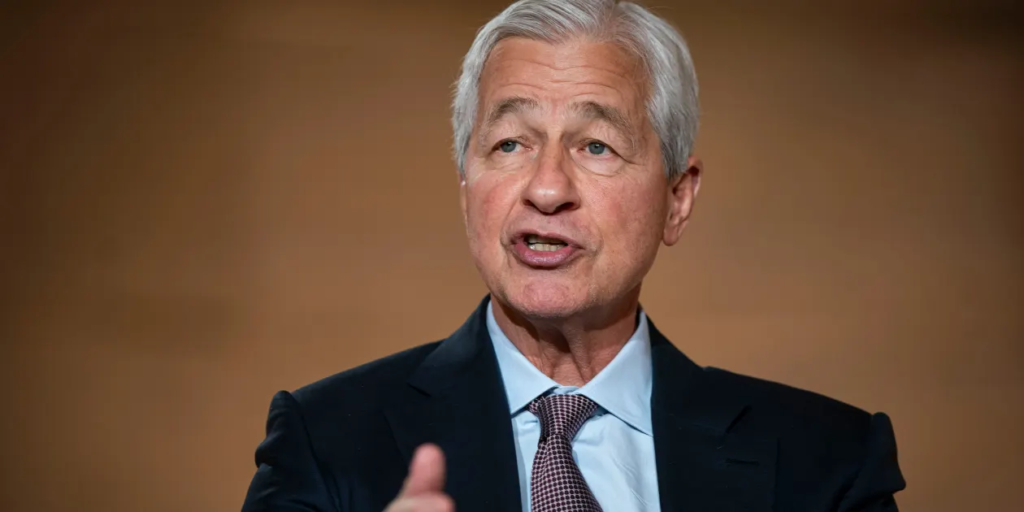
Introduction: Economic Jitters in 2025
As financial markets reel from the latest policy shift by former President Donald Trump, one of Wall Street’s most influential voices is stepping forward with a stark warning. JPMorgan Chase CEO Jamie Dimon, known for his candid economic insights, has publicly cautioned that Trump’s sweeping new tariffs could exacerbate inflation and slow economic growth at a critical juncture.
Dimon’s Warning: Inflationary Pressures Ahead
In his annual letter to shareholders, Dimon outlined serious concerns about the short-term economic impact of the tariffs introduced on April 2, 2025. According to the banking titan, the new duties will drive up the costs of both imported and domestic goods.
“We are likely to see inflationary outcomes, not only on imported goods but on domestic prices, as input costs rise and demand increases on domestic products,” Dimon wrote.
With the U.S. economy already showing signs of deceleration, this added pressure could tilt the balance further away from a so-called “soft landing.”
Markets in Freefall: Echoes of Past Crises
The markets responded immediately—and negatively—to Trump’s announcement. U.S. equities have endured their worst week since the early days of the COVID-19 pandemic in 2020. Dimon’s latest comments only intensified concerns about market stability.
“Markets still seem to be pricing assets with the assumption that we will continue to have a fairly soft landing. I am not so sure,” Dimon said, signaling a break from earlier optimism.
Backpedaling on Previous Tariff Support
Dimon’s shift in tone marks a noticeable departure from his January remarks, where he dismissed fears over tariffs and called them a national security tool. At the time, however, the scope of the policy was significantly smaller.
Now, he describes the new tariffs as “one large additional straw on the camel’s back,” hinting at the cumulative damage they may inflict on an already fragile economy.
The Big Picture: A Critical Crossroads
While Dimon didn’t name Trump directly in his 59-page letter, the policy critique was unmistakable. He acknowledged that while some of Trump’s goals—such as addressing trade imbalances with China and prioritizing deregulation—have merit, the current approach risks destabilizing a global economic order forged over decades.
“If given the opportunity, that is exactly what our adversaries want to happen,” Dimon warned, pointing to the dangers of unraveling international alliances.
Policy Uncertainty: A Dangerous Unknown
Dimon emphasized the unpredictability of the tariff fallout. The effects on global trade, corporate profits, and capital flows remain unclear, and retaliation from trading partners could deepen the turmoil. Meanwhile, stubborn inflation and high fiscal deficits are already weighing heavily on economic momentum.
“The quicker this issue is resolved, the better,” he urged.
A Broader Call for Reform
Despite the criticism, Dimon offered a constructive vision for the U.S. economy. He called for restoring civic pride, implementing common-sense trade and immigration reforms, and reinforcing military strength to preserve America’s leadership role.
“America First is fine,” he noted, “as long as it doesn’t end up being America alone.”
Conclusion: Trouble on the Horizon
Jamie Dimon’s message is clear: in an already volatile economic climate, additional tariffs could be the tipping point. His concerns highlight the need for thoughtful policy, international cooperation, and vigilance as the U.S. navigates an increasingly complex economic landscape in 2025.
